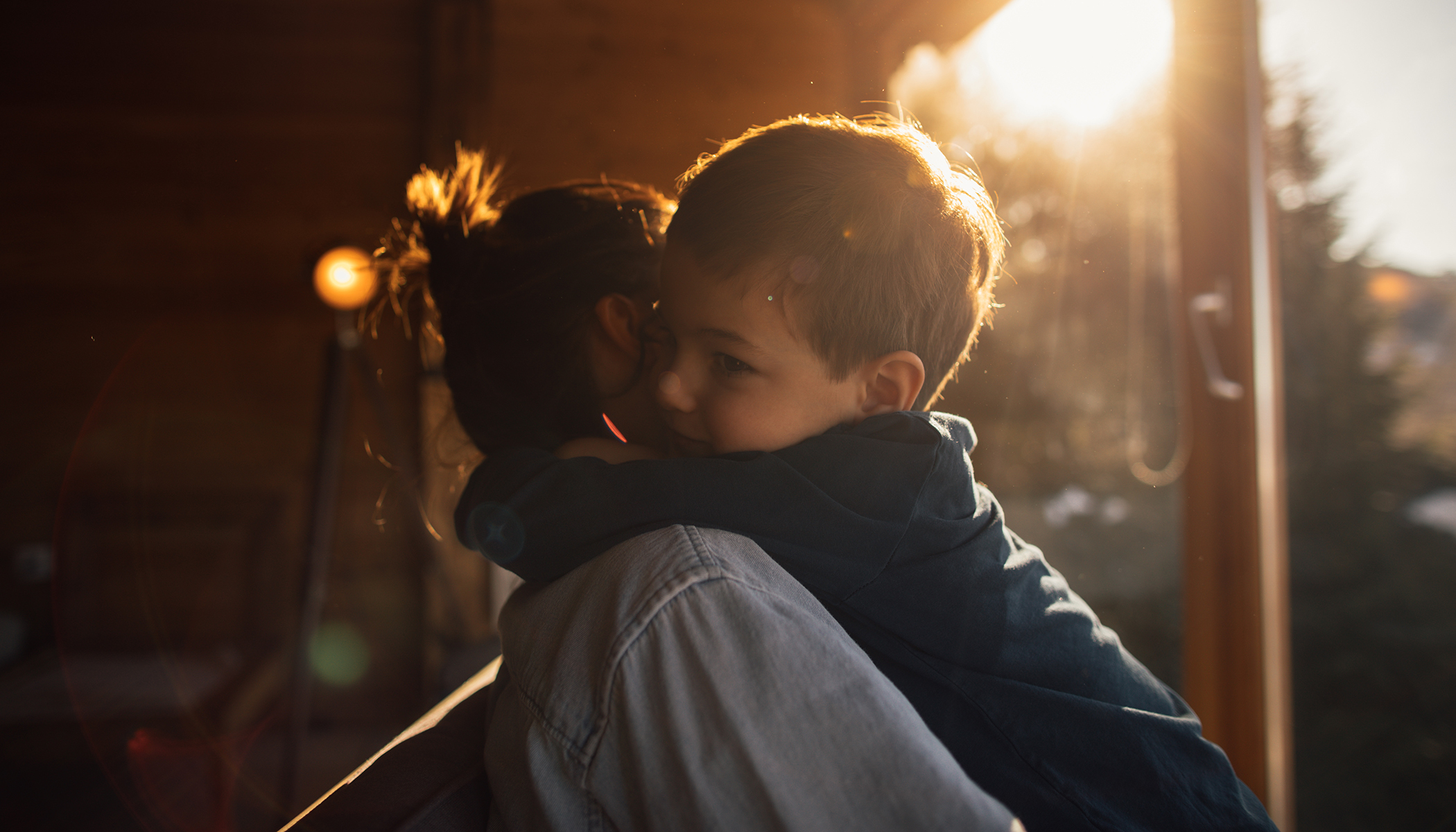Quick facts
- Young children catch 8-10 colds a year before they’re 2 years old
- Vitamin D reduces the risk of respiratory infections
- Sleep really is an effective medicine
Your child’s immune system is not fully developed until they’re around 8 years old. Until then it can feel as though they catch every cough, cold and infection they encounter.
‘Between 6 and 18 months of age, children are particularly prone to infections because the protective antibodies they inherit from their mother are waning, but they’ve not yet developed their own antibodies,’ says Livi Paediatric Consultant Dr Tommy Södergren.
On average, children catch between 8 and 10 colds a year before they’re 2 years old. This is not a sign of a weak immune system — it simply means they’re coming into contact with a lot of cold viruses for the first time.
Immunity works in 2 ways. First, there’s innate immunity, which we’re born with, providing a general defense. Then there’s adaptive immunity which responds to the threats or antigens we encounter, and creates custom-made defense gadgets, called antibodies. This is also what happens when we’re vaccinated with a weakened version of a virus or bacterium.
Because children encounter so many new infections, their immune systems are on constant alert — which may explain why they’re less likely to become ill with Covid-19. Scientists think they may be identifying and destroying the coronavirus before infection can take hold.
Unfortunately, occasional colds and coughs are inevitable for children. But you can take these 7 steps to support your child’s immune system.
1. Take vitamin D
Many experts believe it’s no accident that colds peak in winter, when our levels of vitamin D are low. Vitamin D supplementation reduces the risk of getting respiratory infections and studies confirm it boosts production of infection-fighting T-cells.
In the UK and Europe, daily vitamin D supplements (usually 10mcg) are recommended for all young children – although the advice on dosages and how long to give them varies slightly. Infant formulas are fortified with vitamin D, but breastfeeding mothers are advised to give their babies a supplement of 8.5mcg to 10mcg a day.
‘In the northern hemisphere it’s been recommended for centuries to give babies vitamin D,’ says Dr Södergren. ‘We’re now starting to recommend giving it to older children too, at least during the winter.’
2. Make sure they get plenty of rest
There’s a saying that a good night’s sleep is the best medicine, and sleep and strong immunity are intertwined. Getting plenty of sleep reduces inflammation and gives our body time to repair damaged cells, which strengthens immunity. And when we’re unwell and our immune system is fighting a threat, our immune response makes us feel sleepy, because the body’s resources are focused on fighting the infection or repairing the injury.
Babies and toddlers need at least 11 hours a night plus a nap during the day. From ages 4 to 9, children need 9.5 to 11.5 hours a night and older children and teens need between 9 and 10 hours a night.
A good bedroom routine is the key to getting children settled. A warm bath, dim lights and quiet time will help them wind down. Ban screen use before bed and keep their bedroom well ventilated and between 16°C and 20°C. Here are some more tips on helping children sleep.
3. Choose the right foods
Our immune system needs the right fuel to fight infections, and studies confirm that eating plenty of fruit and vegetables improves immune function. It even makes vaccinations more effective.
Protein is also important— particularly an amino acid called arginine, which is found in meat, nuts and beans. These foods also provide plenty of zinc, which reduces the risk of respiratory tract infections and diarrhoea in children. Probiotic yogurts and drinks boost levels of friendly bacteria in the gut, and this can help reduce the risk of respiratory infections. Try these 6 tips for healthy cooking for the family.
4. Encourage exercise
Getting the family active could help keep colds away, as exercise helps the immune system seek out and destroy infections, Dr Södergren says. ‘Winter is the high season for common colds because we spend more time indoors, where it’s easier to transmit viral infections. By staying outside more and practising social distancing we could reduce the spread of common colds.’
5. Consider pet therapy
Children with pets also have stronger immune systems. Some scientists even believe that owning a pet provides protection from Covid-19, because pet owners will have encountered other coronaviruses carried by animals.
Stroking a pet has been shown to increase levels of an infection-fighting substance in the body called immunoglobulin A. Pet owners are less likely to get repeat bouts of some stomach bugs. And, growing up with a pet may also help the immune system spot the difference between dangerous pathogens and harmless allergens.
6. Avoid unnecessary antibiotics
Don’t ask your doctor for antibiotics when your child has a cold. They don’t work against the viruses which cause most colds and coughs, Dr Södergren says. ‘The only thing that will happen is that you will add diarrhoea to their symptoms.’ Antibiotics can also leave us more vulnerable to infections because they disrupt beneficial bacteria in the gut.
Most coughs and colds can be treated at home with rest, fluids and paracetamol or ibuprofen.
‘In rare cases, children get a bacterial infection — like streptococcal tonsillitis, ear infection or pneumonia — as a cold “complication’’,’ Dr Södergren adds. ‘Even then, in most cases antibiotics are not necessary.’
See a doctor if the cold is not getting better after a week, if it’s getting much worse after 3 days, or if your child has a very high temperature. ‘A sniffle or cough are signs that the immune system is working to clear the body from antigens and mucus and these symptoms can linger for some time after the common cold,’ Dr Södergren asserts. ‘If symptoms persist for more than 6 weeks, see a doctor.’
7. Practice great hygiene
Encourage your children to wash their hands with soap and water every time they use the toilet and before eating. To make sure they wash thoroughly, suggest they sing ‘Happy Birthday’ twice.
If someone in the family has a cold, keep their toothbrush away from the rest of the family’s brushes, and replace it as soon as symptoms have passed. Use tissues, rather than handkerchiefs, to avoid spreading germs.
Discourage your child from rubbing their eyes or chewing fingernails, and pop some wipes or hand sanitiser into their school bag to make sure they can always clean their hands.
But don’t worry if they get a bit dirty when they’re playing. Studies show that being exposed to germs and everyday infections strengthens immunity, while going overboard with hygiene may not be helpful for the immune system.
Children and coronavirus
Rest assured that according to the NHS, while children can get coronavirus, they get it less often and it’s usually less serious.
Symptoms of coronavirus in children:
- A high temperature
- A continuous cough — this means coughing a lot, for more than an hour, or 3 or more coughing episodes in 24 hours
- A loss or change to sense of smell or taste
Call emergency or a GP immediately if your child:
- Is under 3 months old and has a temperature of 38°C or higher, or if you think they have a fever
- Is 3-6 months old and has a temperature of 39°C or higher, or if you think they have a fever
- Has other signs of illness, like a rash, as well as a high temperature
- Has a high temperature that’s lasted 5 days or more
- Does not want to eat or is not their usual self and you’re worried
- Has a high temperature that does not come down with paracetamol
- Is dehydrated — for example, their nappies are not very wet, they have sunken eyes and no tears when crying
When to speak to a doctor
This is an unsettling time for everyone, especially parents. If you’re unsure about whether to check a symptom with your GP, err on the side of caution. Livi GPs are here to help.
This article has been medically approved by Dr Tommy Södergren, Livi Paediatric Consultant




